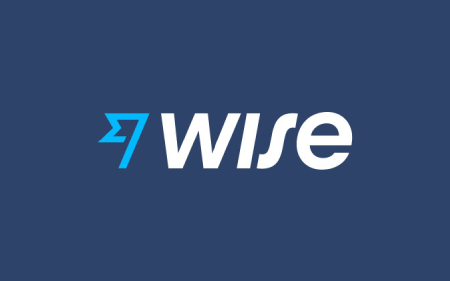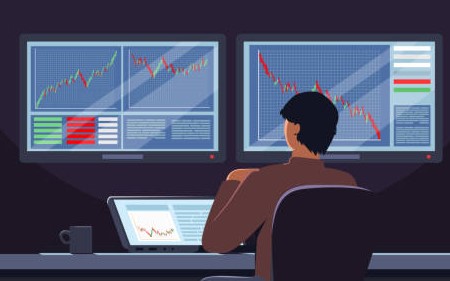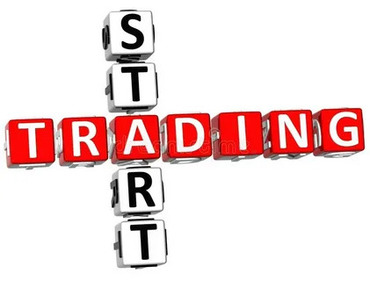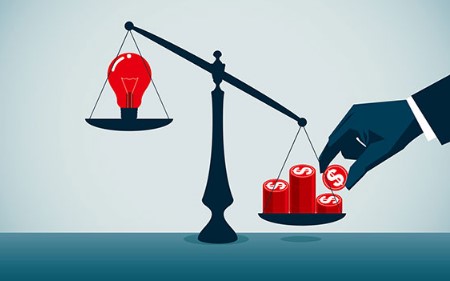A Beginner's Guide for Forex Traders
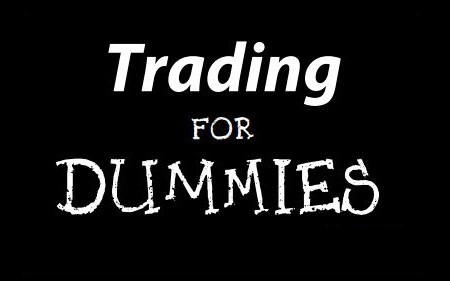 21 / 12 / 22
Visitors: 831
21 / 12 / 22
Visitors: 831
If you are asking yourself "How to trade Forex?" or "How does trading work?" - this article is for you.
And before you start acting, it's important to understand what trading is all about.
This article will give you the basic knowledge you need to start trading, the definition of trading, the basics of learning and important trading vocabulary.
What is trading?
Let's start at the beginning: what is trading?
Trading is the activity that takes place in the financial markets from your online trading platform to place orders to buy and sell various products such as Forex, stock indices, ETFs, CFDs (contracts for difference). A trader's goal is to buy or sell a financial instrument at a specific price in order to make money. Be careful, trading is an activity that can cause you to lose money.
Indeed, if you buy the currency pair EURUSD (the euro against the U.S. dollar) and it falls, you will see your capital fall.
Trading also means accessing financial market quotes through an easy to use platform. This platform allows you to:
- open a trading account
- analyze an asset of your choice
- buy at a better price if you think the price is likely to rise
- Sell at a better price if you think the price is going to fall
Essentials of Trading Education for Dummies
To start trading, you need to know the basics of trading. Knowing what different financial assets represent, a basic vocabulary, knowing how to use a trading platform and knowing different strategies are elements that will help you not get lost when you start trading.
Before you start trading, it is important to know the basics.
Trading financial products
In the financial markets, you can trade:
- currencies
- CFDs on Indices
- CFD stocks
- CFD on ETFs
- CFD on cryptocurrencies
- CFD on goods
- CFD on bonds
Currency
Forex trading is all about trading currencies such as the U.S. dollar, the euro, the Japanese yen and many others. These currencies are traded in the Forex market as pairs of currencies, of which the most traded:
- EURUSD, the euro against the U.S. dollar
- GBPUSD, the British pound against the U.S. dollar
- USDJPY, U.S. Dollar against the Japanese Yen
- EURJPY, EUR against JPY
- USDCHF, US Dollar vs Swiss Franc
- USDCAD, US dollar vs Canadian dollar
- AUDUSD, Australian Dollar vs US Dollar
CFD Trading for Dummies
CFDs are a financial product that allows you to trade to buy or sell to profit from the rise or fall of an underlying asset, such as stocks, bonds, indices, cryptocurrencies, and indices, without even owning the asset and therefore without ever owning it.
The advantage is the ability to speculate on the decline of the asset using CFDs.
Take the example of an FDJ stock. You think the stock is going to fall, instead of waiting patiently, you can "short" the FDJ CFD, that is, you can trade on the decline of the asset.
Please note: CFDs allow for speculation with leverage. You must be extremely careful about the risks you take. Be careful and never trade with the money you want.
Thus, you will find CFDs on indices (CFD CAC 40, CFD DAX 40, CFD Dow Jones, ...), CFDs on stocks, CFDs on commodities, CFDs on cryptocurrencies, CFDs on ETFs, etc., even CFDs on bonds, at your broker.
Basic Vocabulary to Start Trading
You can use a trader's glossary to find a term you don't understand.
Let's go over some basic vocabulary together to get you started in trading.
PIP: this is the smallest change in the quote of a currency pair. When EUR/USD goes from 1.1000 to 1.1001, it increases by 1 pip.
Lot: A lot is the unit of measure for the size of a trade. In the Forex market 1 lot equals 100,000 units of the base currency (Euro, US Dollar, Pound Sterling, etc.). There are mini lots (0.1 lot) and micro lots (0.01 lot) of 10,000 and 1,000 units respectively.
Leverage: Leverage increases a trader's investment opportunities. So, a Forex trader can spend a small amount of money and actually invest a lot more in financial markets like Forex. Leverage increases profits, but it also increases losses.
Margin: This is the capital required to open a trade. It is released when the transaction is closed.
Bid price: The bid price of a currency pair.
Bid price: The selling price of a currency pair.
Spread: The difference between the buy and sell price of a currency pair, expressed in pips. It is the price paid to open a Forex trade.
Swap: Also known as rollover, it is the cost or profit paid when a trade remains open overnight.
Being in a long position: equivalent to being a buyer in the Forex market, also called an FX Trade.
Opening a short position: equivalent to being short in a trade.
Trade: trade means to open a buy or sell position.
Broker: also called a broker, it is an intermediary who places orders in the stock market for his clients for a fee. It is through a broker that you can make trades in the financial markets.
How do I start trading?
To start trading, it is important to have access to an intuitive online trading platform.
Take for example the most used in trading and globally recognized platform: Metatrader.
This online platform allows you to place your first orders for the desired asset.
There are also demo accounts that will allow you to practice for free for 30 days to use the platform to understand the different techniques that you will see without risking your capital.
Trading Strategies for Dummies
A trading strategy is a plan of action that a trader makes for their trading in the financial markets that they enjoy. These strategies are important for any trader, whether a beginner or a professional, to ensure that all their trading decisions are in line with their trading plan and their money management.
For beginner traders, it may be interesting to start with day trading or swing trading.
Day-Trading for Dummies
As the name implies, intraday trading is limited to one day, which means that the trade will be closed at the end of the trading day.
For example, an intraday trader will open 3 positions per day and will have goals of 15 to 50 pips per trade.
The Japanese candle on the trading charts would be from 1 minute (M1) to 15 minutes (M15).
Thus, intraday trading allows you to limit the number of positions.
It is very important for an intraday trader to consider the economic calendar and not be in a position when important information is announced.
Swing Trading in Forex for Dummies
Swing trading is preferred by traders who do not have a lot of time to trade.
Be careful, trading is a serious activity that requires a lot of work.
A swing trader will only need to analyze charts for a few minutes a week.
Note that this does not mean that a trader will only spend a few minutes a week trading. A swing trader will need to spend time reading economic news and studying the economic environment around them, as the duration of their trade can last longer than a day.
The Japanese candlestick on daily charts is 4 hours (H4) or even 1 hour (H1) for position clarification. Thus, the news will be important for a swing trader, as the trade will be open for several days and will necessarily be subject to more volatility in case of major events.
How much capital should I start trading with?
The amount of money a beginner trader needs also depends on the number of currency pairs or instruments (indices, commodities, etc.) in which you are going to invest.
The more Forex pairs you trade, the more capital you will need to maintain the required margin to open Forex trades.
Your advantage is the number of Forex pairs you will trade.
Your risk is the number of lots per trade.
For you, margin calculators will determine, for example, the value of a EUR/USD point or another asset, the margin required according to your desired volume, and the profit or loss on the trade according to your leverage effect.
To start trading, you need the initial deposit required for Trade.MT5 and Trade.MT4 accounts, which is 100 euros.
There are also free online courses that teach you how to trade and even live trading sessions for your reference.
These courses will allow you to discover different trading techniques at your own pace, but above all to go from zero to an experienced trader.
A complete list of unscrupulous brokers, that we do not recommend working with is available here.



